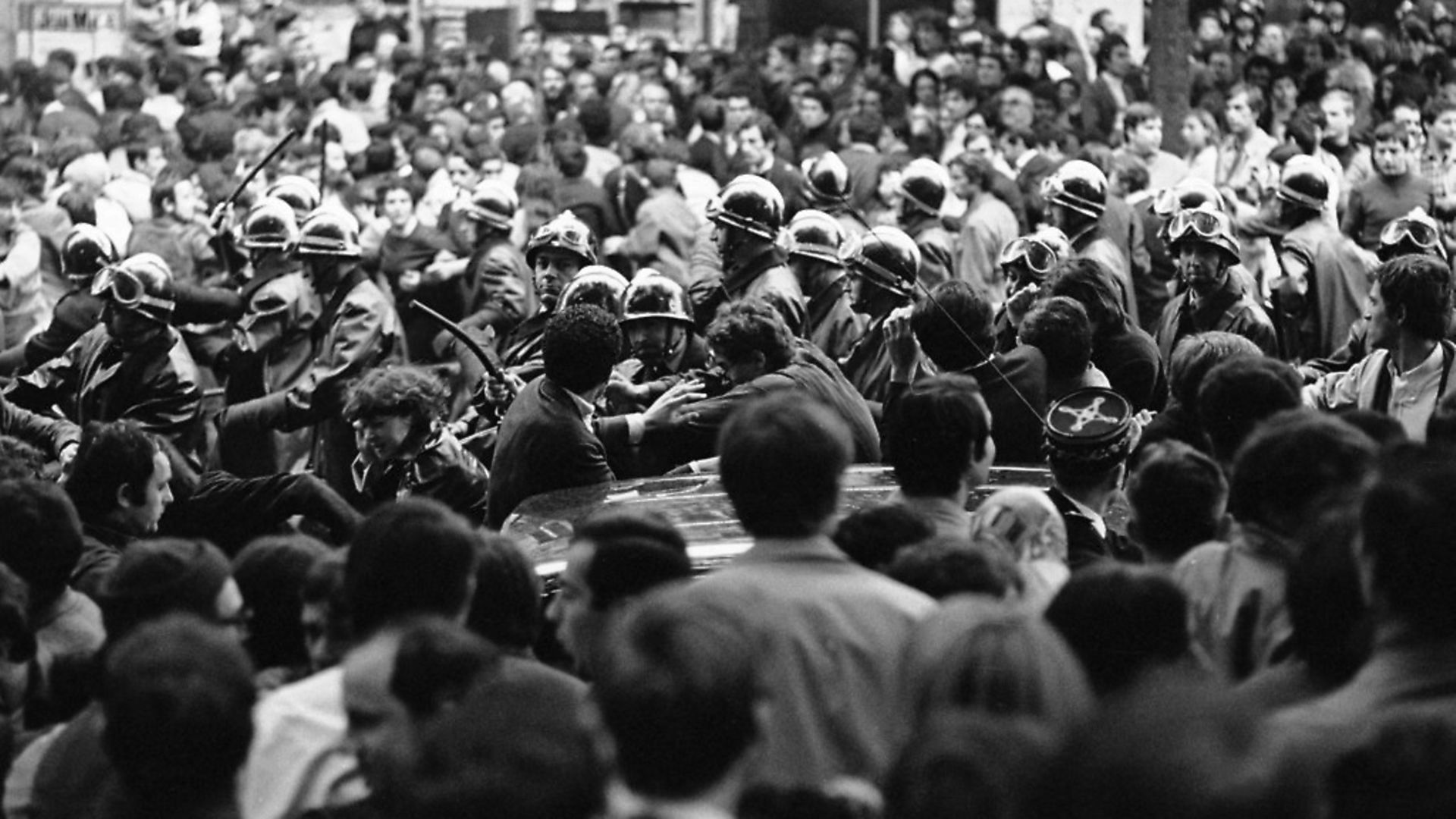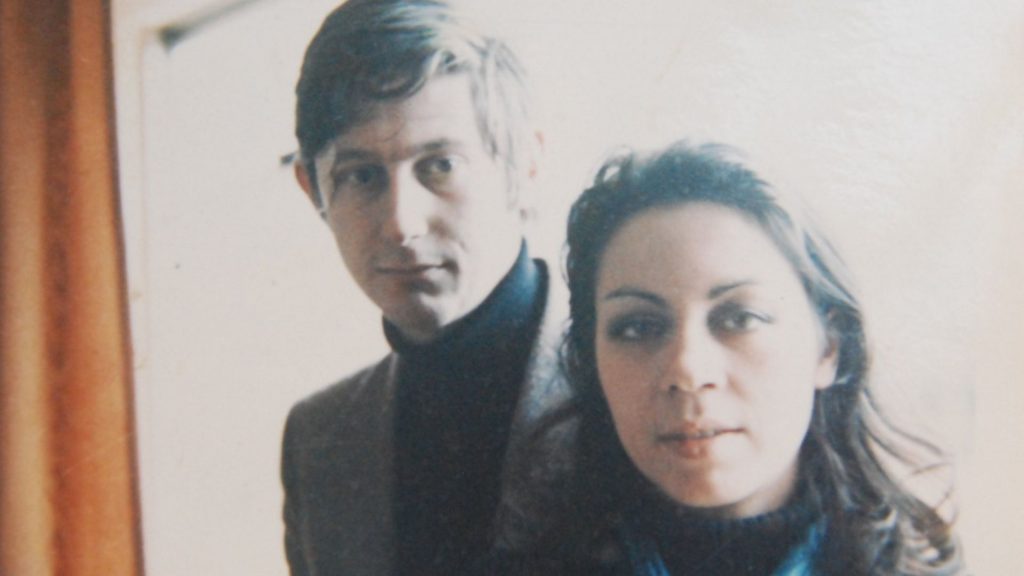
Recalling the Paris riots of May 1968, when France’s fate hung in the balance

I had not been in Paris long when the city started to boil over in May 1968. I had moved to the city in January to work for the subsidiary of a British company and was sharing an apartment in the Boulevard St Martin, near La Place de La Republique, with Lucia, my Italian girlfriend.
While the apartment was spacious and comfortable, entering the building was like a scene from Les Miserables; a rickety wooden staircase, which would probably have failed any fire test, the concierge’s basic accommodation tucked in a corner, a prostitute leaning against the wall and the odd rat which scurried into the cellar. Ours was not far from the bohemian Parisian experience many dream of. We were totally immersed in the cafes and jazz clubs on the Left Bank and spent hours browsing bookstores like Gibert Jeune and Shakespeare & Co.
The advent of spring had seen the tourists arrive and fill the bateaux mouches cruising along the Seine, but it also brought the first signs of what was to come. The revolt had begun at Nanterre University, following its occupation by the students back in March, and when the government chose to intervene, attention shifted to the Sorbonne University complex on the Left Bank, with demonstrations leading to further confrontation with the police forces.
The situation worsened when French workers joined the student protests, occupying the Renault and Citroen car plants and calling for a general strike. The strikes extended to employees in other sectors including public sector workers and taxis.
By now, Parisians’ daily routines were seriously disrupted: transport strikes brought traffic to a standstill, petrol became scarce due to lack of deliveries, motorists formed long queues at petrol stations and garbage piled up in the streets.
The Odeon Theatre close to the Luxembourg Gardens had been occupied by student groups on May 14. Keen to participate in the events, Lucia and I managed to climb over piles of paving stones used as barricades, squeezing our way past crowds of students into the theatre. We found a balcony seat and listened to a young man, Daniel Cohn-Bendit, one of the student leaders, arguing for change. His debating talents were to lead to a career in politics as a prominent MEP.
The debates were heated with shouting and gesturing from the audience and I felt as if I had gone back in time and was listening to Danton or Robespierre during the French Revolution. After leaving the theatre for a drink at the Cafe Danton on the Place de l’Odeon we suddenly heard an explosion on the other side of the Boulevard St Germain and saw flames rising and the sound of smashed glass at the corner cafe.
Somebody had thrown a Molotov cocktail through the window. Police, fire services and ambulances were soon on the scene with lights flashing and sirens blaring. Fortunately, there were no casualties.
Boulevard Bineau was typical of the streets in the suburb of Neuilly, a tree-lined avenue lined with luxury apartment blocks and mansions, one of which had been converted into offices, where I worked. It was a far cry from the Left Bank where the paving stones (subsequently to become tourist souvenirs) were ripped up and used as weapons, and cars and barricades set on fire.
Street battles with the riot police became a regular night time occurrence. My mother, calling from London, urged me to leave the city. ‘Is Paris burning?’ she would ask, not realising that the dramatic scenes shown on television were limited to a few streets in the Latin Quarter, while the rest of Paris was unaffected. Trying to reassure her that all was well was difficult.
I was at my desk one morning when I heard the gates open and peering out of the window saw a truck reversing into the drive loaded with a huge round tank. The company director had somehow located a source of petrol outside Paris to enable staff to fill their cars in privacy. It came just in time for the Ascension public holiday which fell on a Thursday, so with Friday off work I drove down to the Loire valley with Lucia, visiting the chateaux and staying in a pretty hotel by the river Cher where we had excellent meals under the shade of willow trees on the terrace, a world away from the tumult in Paris.
Despite attempts to resolve the conflict neither the government nor the unions seemed prepared to give way. I woke up early one morning to hear a rumbling sound shaking the building as it grew louder. I glanced out to see a convoy of tanks slowly heading along the Boulevard St Martin towards the Opera district. This is serious, I thought.
From the window I saw the side street blocked by a line of CRS riot police, blocking access to the nearby Academy des Arts et Metiers whose students had also joined the demonstrations. One evening, after two hours of manoeuvring through dense traffic on our way home, we simply gave up, left the car on the pavement in a narrow street near Les Halles and ate in a nearby Moroccan restaurant while waiting until the roads cleared.
Towards the end of the month, news filtered through that the president, Charles de Gaulle, had disappeared. It transpired he had left the country and was at Baden-Baden in Germany meeting an army general and rumoured to be preparing for a military riposte. The unions had massed over half a million people in the streets of Paris.
De Gaulle then reappeared in Paris to announce new elections and, on May 30, more than three quarters of a million Gaullist supporters marched from the Place de la Concorde to the Place de l’Etoile, joining hands in an emotional appeal for calm, and to show that perhaps the majority of the French people had had enough of chaos.
I had arrived early and placed myself on a bollard beneath the Arc de Triomphe, from where I had a perfect view of the huge crowd thronging Les Champs Elysees singing the Marseillaise. It was an emotional experience.
The last weekend of May and beginning of June coincided with the Pentecote (Whitsun) holiday. The government had understood the importance of ‘Le Pont’ the traditional long weekend break, and surprisingly there was a sudden renewal of petrol deliveries, which enabled the Parisians to leave the capital: a political ruse according to opponents.
The elections organised at the end of June turned out to be an overwhelming success for the Gaullist party which was returned with a massive majority; the revolt was over.
Peter Fieldman is a writer and lives between Paris, Florence and Madrid. The second edition of his book The World at a Crossroads will be published this spring









